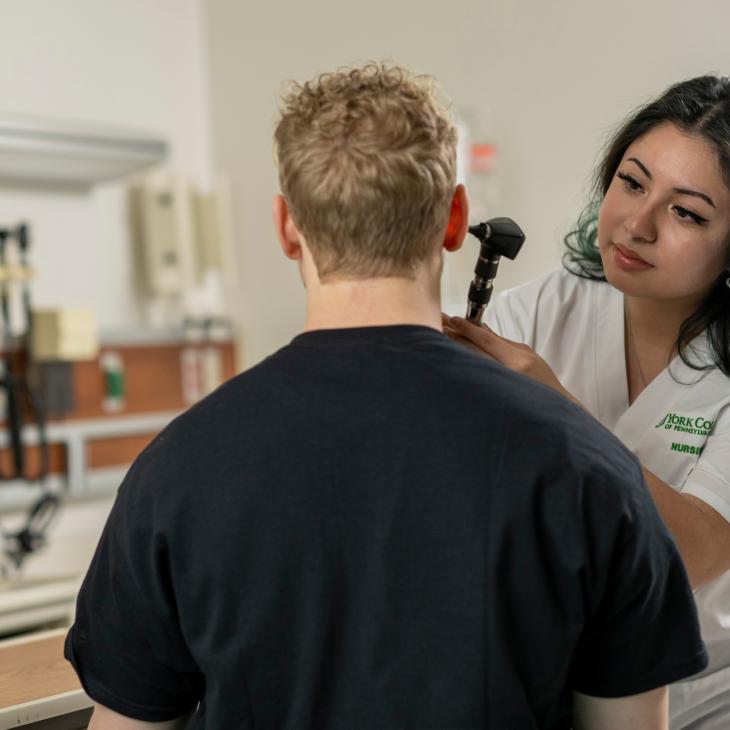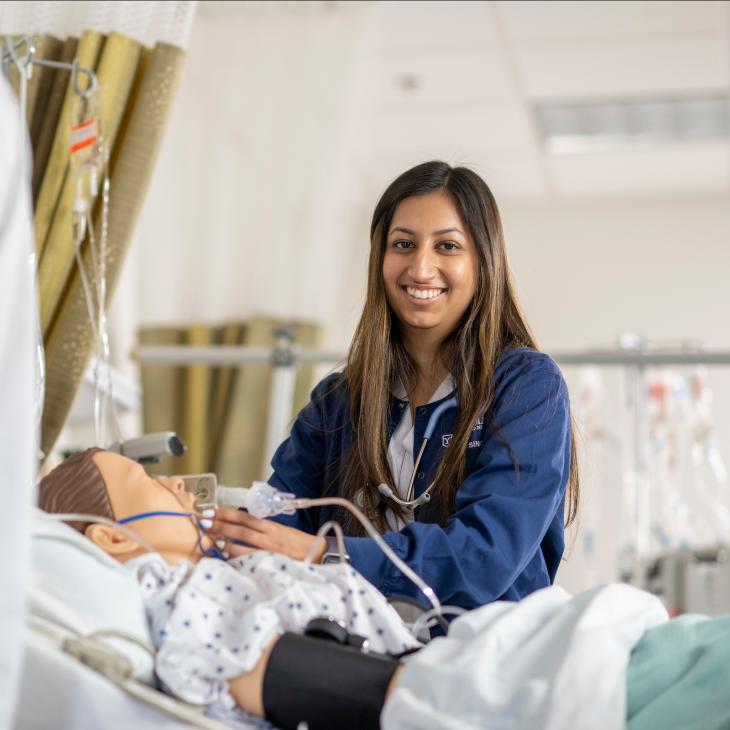
Simulation is not a substitute for clinical experience - it complements clinical experience.
If you like learning with a group, learning hands-on, using technology, going outside the classroom or solving real-life problems, you'll love our simulation labs.
Your simulated learning activities will not lessen your clinical time. Students have five semester of real clinical experience: one-half day per week during the first clinical semester, one day per week during the second and third clinical semesters, and two days per week for the fourth and fifth clinical semesters. Nothing beats the real thing!
What are the benefits of simulation?
- Make mistakes and get immediate feedback
- Practice psychomotor skills
- Increase confidence prior to actual patient contact
- Practice unusual or critical events

What are the benefits of simulation?
In simulation, you'll be presented with a scenario that resembles a real clinical situation as closely as possible. You'll pull together your knowledge, skills and critical thinking abilities to help the patient in the situation. Simulation will help you develop confidence, learn teamwork skills and think on your feet! Our lab areas include two simulations rooms, two nine-bed skills labs, a maternal-child lab, and a health assessment lab with eight treatment tables.
- Noelle, a simulated female who delivers a full-size baby; Baby Hal, a newborn simulator who moves, cries and has blood pressure, pulses, heart and lung sounds
- Six VitalSim Annes, full-body anatomically correct manikins that simulate ECGs, fetal heart sounds
- Chris, a one-year old manikin who has streaming audio, blood pressure, pulses, heart and lung sounds
- Four SimMan 3G, high-fidelity adult manikins with blood pressure, pulses, heart rhythms and lung sounds

